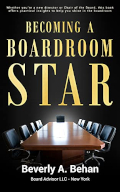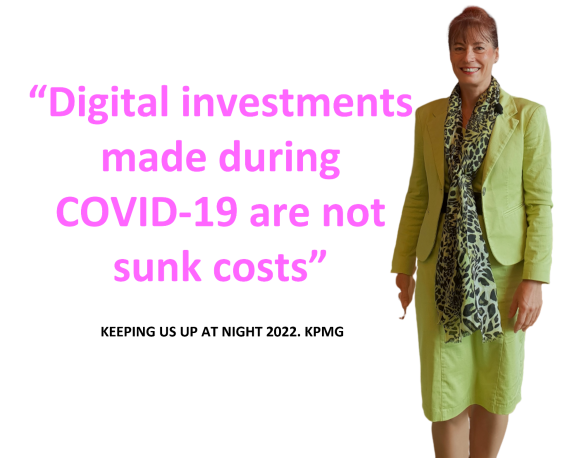Dear reader,
Welcome to The Director's Dilemma 2022!
Each month this newsletter looks at a real-life scenario that happened to a board, perhaps to a board like yours, and considers a range of responses. The scenarios are de-identified to protect the individuals concerned. This month we consider how a board can confidently make a new strategy when the previous one failed. On the one hand, the wisdom is that you get straight back on the horse after falling off, but on the other hand you don’t want to repeat your mistakes and take another fall. How would you solve the dilemma?
Of course, these scenarios are general, written to help you with practical information without the risks that attach to living these situations in real-life. I work with boards and directors as a confidential mentor to help them build great companies and maximise their impact. If you would like personalised service, please call me.
To read this email in a web browser, go to www.mclellan.com.au/newsletter.html and click on 'read the latest issue'. I hope you will enjoy the latest dilemma:
 Orlanda's board is about to abandon the company's strategy because it has not worked and they have reached the walk-away point that they set for themselves when it first became apparent that the strategy was not delivering.
Orlanda's board is about to abandon the company's strategy because it has not worked and they have reached the walk-away point that they set for themselves when it first became apparent that the strategy was not delivering.
Management are expecting it. There have been a few comments from analysts and institutional investors at recent 'roadshows' asking when the board will reconsider, and last week there was an article about it in the press.
Rather than wait to discuss the issue at the in-camera session prior to the board meeting, Orlanda's chair organised a board zoom call so that the directors could talk through the coming decision and its implications with no executives present.
The conversation was honest and penetrating: The board spent much of the time discussing that they are not sure if management failed to implement well or if they – with management - had endorsed a poorly conceived strategy in the first place. However, they all agree that they don't want to delegate the task of developing a new strategy to the team that has just failed to deliver this one. Equally, they agree that they don't want to punish management for a failure that is simply not due to any fault of the management team or their work but stems, instead, from unforeseeable market conditions.
Which leaves the board unsure how to move forward; what can they do to ensure that they act fairly and still avoid making a second strategic error? How can Orlanda, who is not the chair, help this process?

 It would appear that the board has in fact developed the strategy and delegated the responsibility for its implementation to the executive. This is contrary to good governance principles.
It would appear that the board has in fact developed the strategy and delegated the responsibility for its implementation to the executive. This is contrary to good governance principles. Orlanda's role is to help the board to reach the best decisions it can.
Orlanda's role is to help the board to reach the best decisions it can. The board and management are responsible for the strategy and are equally responsible for not considering all possible market forces that could impact the successful implementation. The board being unsure if they can blame management for the poor implementation of the strategy, gives a perception that they may not have interrogated the strategy implementation as robustly as they should have.
The board and management are responsible for the strategy and are equally responsible for not considering all possible market forces that could impact the successful implementation. The board being unsure if they can blame management for the poor implementation of the strategy, gives a perception that they may not have interrogated the strategy implementation as robustly as they should have.

